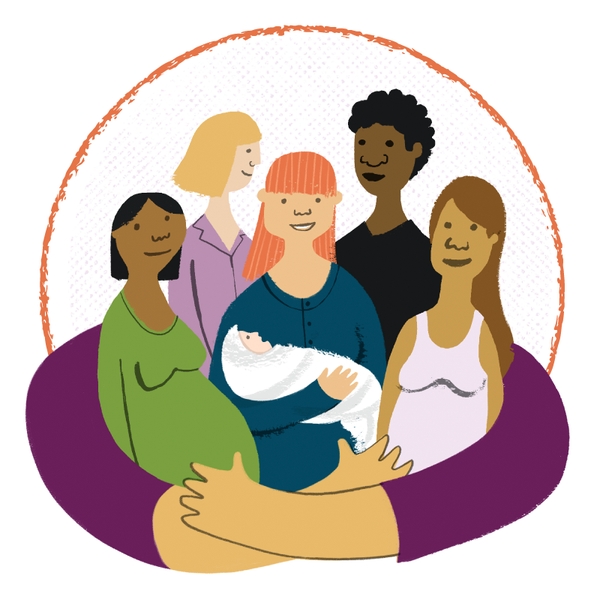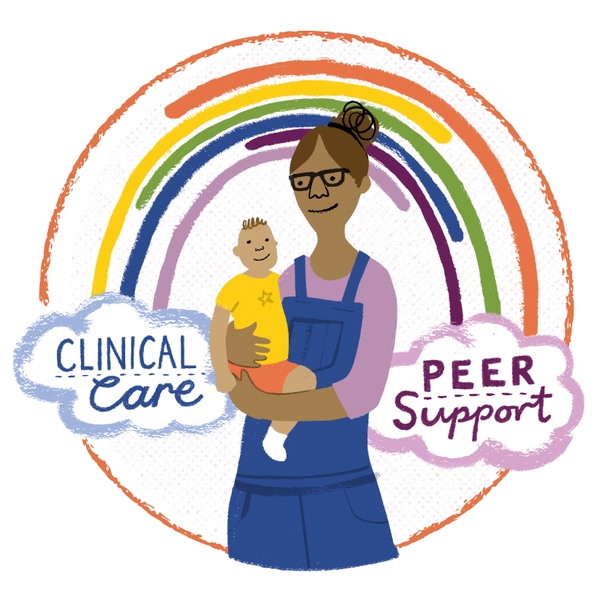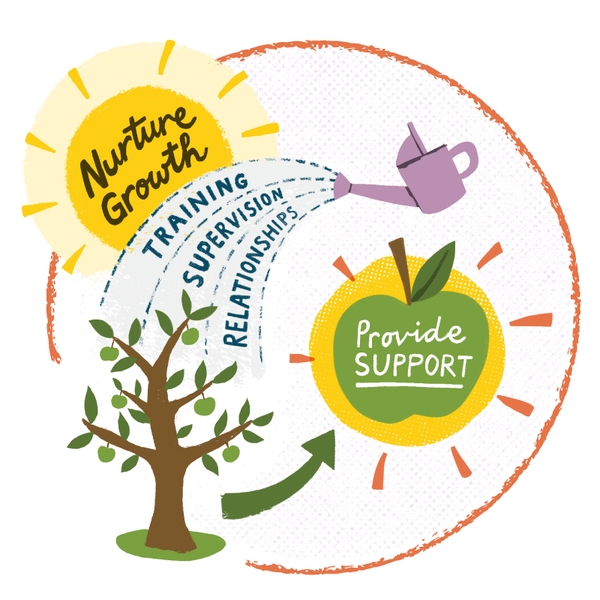The Perinatal Peer Support Principles are a set of five values designed to give peer supporters the confidence to create and deliver peer support that meets the needs of women and families affected by mental health problems during pregnancy or the postnatal period.
The Perinatal Peer Support Principles were co-designed by people with lived experience, maternal mental health and maternity professionals, organisations facilitating peer support, Mind and the McPin Foundation.
Additional support, including testing and feedback, was provided by fellow Maternal Mental Health Alliance (MMHA) members and MMHA staff helped to coordinate the design and dissemination of the final principles.
Good peer support fosters a culture of trust, non-judgement and empathy. It enables women to feel safe to share their experiences and difficult feelings should they wish to. This is facilitated by clear guidelines on how to discuss difficult topics safely, for example how much to share and in what way. Good peer support establishes clear ground rules and boundaries at the outset. These need to be revisited and renegotiated periodically as the peer relationship develops or group membership changes. Ground rules and boundaries should be developed within organisational policies but may be unique to each peer relationship as they are co-designed with peers.
Read more
Good peer support takes proactive steps to ensure accessibility. An important part of this is the option of self-referral and limited waiting times. Practical steps that make it easier for women to attend face to face peer support include holding meetings in accessible locations with good transport links and at times suitable to peer support members. While some projects or services will find they need to provide childcare in order to increase accessibility, others may find that mums want the opportunity to attend a group with their children.
Read more
Good peer support builds on what makes it unique and distinct from clinical mental health services. It offers holistic support that goes beyond mental health. It works flexibly to adapt to the needs of the mum and her family. The work of peer support and clinical mental health services should complement each other. As the outcomes of peer support and clinical mental health services overlap only partially, women need to have access to both forms of support. Depending on the women’s circumstances, including the severity of the mental health difficulties they are experiencing, one approach may be more suitable than the other.

Good peer support involves people with relevant lived experience in its design and delivery. It is essential that all peer supporting is done by people with lived experience considered relevant in a particular peer support context. This on its own does not guarantee the quality of peer support but is necessary for the support to act as peer support rather than professional support or voluntary support delivered by non-peers. This is particularly important in one to one peer support but should also be considered in group facilitation.

Good peer support enables peer supporters to benefit from their involvement in peer support. People with lived experience in supporting roles, whether one to one supporters, group facilitators or online moderators, are not merely ‘providers’ of support. They should have the possibility of benefiting from peer relationships. While they may not benefit from their involvement in peer support in the same way as the mums they are supporting, peer support organisations should recognise that offering peer support has an impact on supporters’ mental health and wellbeing.

For more information about how Mind and the McPin Foundation developed the Perinatal Peer Support Principles, download their report.
With thanks to Comic Relief, whose funding made this project possible.
If you have questions or feedback about the Perinatal Peer Support Principles, please email us on info@maternalmentalhealthalliance.org. and we’ll do our best to connect you to the project team at Mind and the McPin Foundation.